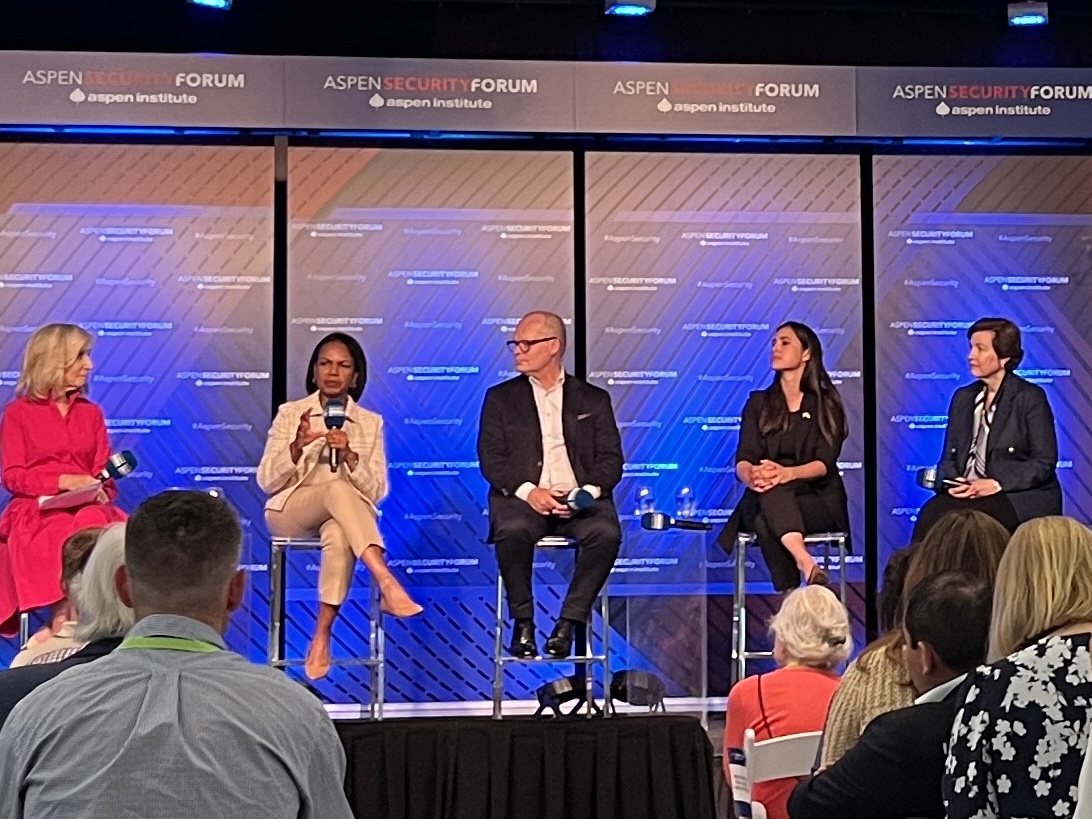President Donald Trump is reportedly ramping up efforts to broker an end to the Russia-Ukraine war. However, growing alignment among Russia, North Korea, and Iran is casting doubt on the possibility of peace, according to experts at the Aspen Security Forum in Colorado.

Halyna Yanchenko, a member of Ukraine’s parliament and head of its defense industry investment task force, raised alarms on July 17, stating, “Over the past three years since the war began, North Korea, Russia, and Iran have established a robust security partnership. This alignment threatens not only Ukraine but global security at large.”
Yanchenko, a close adviser to President Volodymyr Zelenskyy, previously served as an anti-corruption policy advisor during his transition to power in 2019.
“Russian President Vladimir Putin prefers cooperation with authoritarian regimes like North Korea and Iran over compromise with democratic Western nations,” she said. “These countries share a common disregard for human rights and practice repressive governance.” She added that Putin is increasingly isolating himself and engaging in what she called “political suicide.”
Yanchenko claimed that although President Trump has created several opportunities for a ceasefire over the past six months, “Putin has rejected every one of them.”
Also on the panel was former U.S. Secretary of State Condoleezza Rice, who cautioned against overstating the strength of this emerging tripartite alliance. “While it may be tempting to lump Iran, North Korea, Russia—and even China—together, the reality is that they share few commonalities and often face internal conflicts,” she said.
“Russia remains wary of China’s expansionist ambitions, and many former Soviet states in Central Asia are increasingly aligning with Beijing,” Rice noted. “This alliance is much weaker than it appears on the surface.” She recommended that while these nations should be addressed collectively, efforts should also be made to foster internal resolutions to their conflicts.
Yanchenko also highlighted Ukraine’s resilience in the face of ongoing war. “Even in the third year of conflict, our government continues to function, and our defense manufacturing capacity has increased by 35 times compared to pre-war levels,” she stated.
Still, she acknowledged the toll the war has taken on civilians. “Many parents now put their children to sleep in bathtubs or closets—anywhere they feel is safer. The Ukrainian people are desperate for this war to end,” she said.
Pasi Rajala, Political Director at Finland’s Ministry for Foreign Affairs and fellow panelist, noted that Russia’s economy has been severely weakened by international sanctions. “They are suffering from labor shortages and a lack of investment. It’s time for Putin to re-engage with the international community,” Rajala concluded.
BY KYEONGJUN KIM [kim.kyeongjun1@koreadaily.com]

![Thefts target Korean churches in LA, exploiting Sunday services A man believed to be the suspect. [Courtesy of Pastor Sam Shin]](https://www.koreadailyus.com/wp-content/uploads/2026/02/0203-thief-100x70.jpg)
![SSA to scrutinize overseas travel of Social Security beneficiarie An illustrative image of Social Security beneficiaries traveling abroad. [ChatGPT-generated image]](https://www.koreadailyus.com/wp-content/uploads/2026/02/0202-social-security-100x70.jpg)
